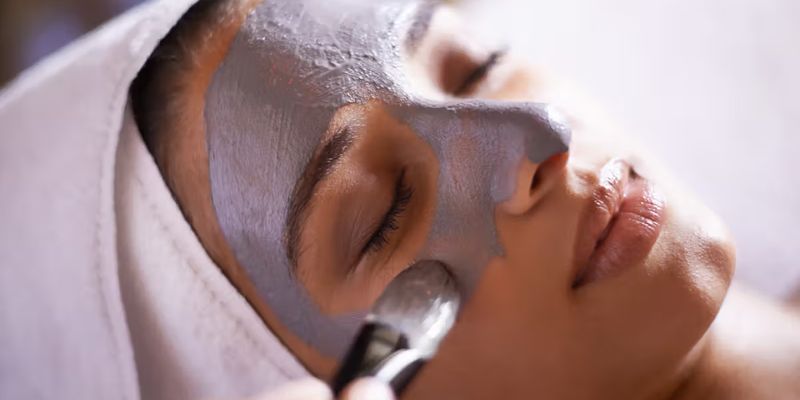The proliferation of digital devices, including laptops, tablets, and smartphones, has resulted in an increase in the amount of visible light spectrum constituent blue light. High-energy visual (HEV) light, which is characterized by shorter wavelengths and higher energy levels, is emitted by the sun. The escalating prevalence of screen usage, specifically in the digital age, has generated heightened concerns regarding the potential negative impacts of blue light exposure on health, including the condition of the epidermis. As a consequence of this growing concern, skincare specialists and dermatologists have devoted considerable time and energy to investigating and debating the potential skin effects of blue light.

The Science of Blue Light and Skin
More and more researchers are interested in studying the cellular and molecular impacts of blue light on skin. When it comes to cells, blue light is more penetrating than UV rays; it reaches the dermis, the layer that contains elastin and collagen. Free radicals are unstable chemicals that may harm cells, and an excess of them can be formed during oxidative stress, which can be caused by this penetration. Wrinkles and a general loss of skin firmness may be brought on by the breakdown of collagen and elastin fibers, which can happen when free radicals are present. Furthermore, research has shown that blue light may stimulate melanogenesis, the synthesis of melanin, which in turn can worsen hyperpigmentation and cause skin tone inconsistencies.
Cellular and Molecular Impact
Disruption of the circadian cycle is another biochemical effect of blue light on skin cells. The skin's capacity to heal from external stresses may be compromised if this disturbance impacts the skin's natural repair mechanisms. Additionally, research has shown that blue light exposure may harm DNA, which raises worries about the long-term effects on skin health and the possibility of an increased risk of skin cancer.
Long-Term Skin Health Concerns
Exposure to blue light is linked to faster photoaging and an increased risk of chronic skin problems such as melasma and hyperpigmentation, which are issues for long-term skin health. These problems might worsen with time and more severe skin injury if you don't use protective gear.
Protecting Skin
Efficacious in absorbing or neutralizing the energy from blue light, modern formulations now include substances like antioxidants and iron oxides. Because blue light causes oxidative stress, it is especially helpful to utilize products that include antioxidants, such as vitamin C and E, ferulic acid, and niacinamide. More and more, sunscreens are being developed with broad-spectrum protection in mind, meaning they can ward off not just UVA and UVB rays, but also HEV light.
Topical Solutions and Sunscreens
Modifying one's way of life and the surrounding surroundings are just as important as using topical treatments when it comes to protecting one's skin against blue light. Because extended screen time may disturb circadian rhythms, which impact skin health, one important strategy is to limit screen time, particularly in the hours leading up to sleep. It is also possible to lessen the exposure of blue light to the skin by using screen filters or glasses that block blue light. It may be helpful to reduce the usage of light-emitting diode (LED) lights, which produce a lot of blue light, and to change artificial lighting to warmer tones in homes and offices.
Lifestyle and Environmental Adjustments
A healthy diet may help shield skin from harmful blue light as well. One way to protect skin from oxidative stress is to eat a diet high in antioxidants. Vitamin C and E rich foods, like citrus fruits, dark greens, almonds, and seeds, work well. Another important consideration is being hydrated. When you drink enough water, your skin stays moisturized and can better withstand environmental stresses.

Impact on Various Skin Types
Blue light exposure has vastly diverse effects on various skin types due to variables such as melanin level and individual sensitivity. Blue light may have a more noticeable impact on lighter-skinned people since their skin has less melanin. Because of this vulnerability, you may have skin damage including hyperpigmentation and accelerated aging, as well as an increased risk of oxidative stress. On the other hand, darker skinned people aren't immune, even if their melanin levels naturally provide them with protection. Problems like worsened hyperpigmentation might arise for them because blue light stimulates melanocytes, which generate melanin and cause skin tone irregularities or dark patches.
Sensitivity Variances Across Skin Types
The way skin reacts to blue light is also greatly affected by sensitivity variations. It doesn't matter what color skin someone has; some people may just have skin that reacts differently to light. More noticeable effects, such as reddening, inflammation, or the acceleration of ageing indicators, may result from this enhanced sensitivity. Taking further measures to reduce exposure to blue light is essential for those with sensitive skin.
Special Considerations for High-Risk Groups
Individuals in high-risk categories, such as those who already have skin problems like melasma or photosensitivity diseases, also need extra care. Blue light may make some people's ailments worse and cause their symptoms to worsen. More severe safeguards, such as the use of skincare products designed to filter blue light and changes to their way of life, may be necessary to adequately protect them.
Preventative Measures and Skin Care Routines
Protecting the skin from the harmful effects of blue light entails taking preventive measures and developing individualised skincare routines. When it comes to protection, going through a daily skincare regimen that includes products that include specialised compounds that filter blue light may be useful.
Conclusion
In a world where technology rules, it is essential to comprehend how blue light affects skin health. People may protect their skin from harm by learning how various kinds of skin react and then taking appropriate measures. In order to combat the harmful effects of blue light and keep skin healthy and supple in today's technology-driven world, it is recommended to adopt a holistic strategy that includes topical treatments, lifestyle changes, and personalized skincare regimens.







